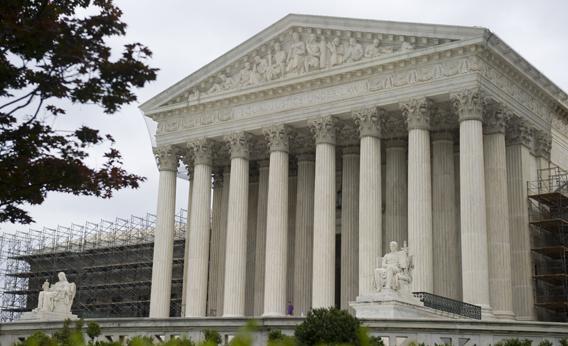Over the next few weeks, some of Slate’s favorite legal eagles are proposing their favorite constitutional amendments, in the service of our effort, with Me the People author Kevin Bleyer, to rewrite the founding document. Here are proposals about the right to trial by jury, protecting informational privacy, amending the Constitution by national referendum, electing the attorney general, and moving up the date of the presidential inauguration.
Double Jeopardy (Fifth Amendment)
Theoretically, the Constitution’s double jeopardy clause is supposed to protect a defendant from being tried twice for the same offense. In practice, our constitutional protections against double jeopardy are anemic. One reason that’s true is because the Supreme Court has read the clause to allow the government to retry a defendant on a charge anytime the jury doesn’t reach unanimous agreement on a defendant’s innocence with respect to that charge.
This is unjustifiable. Unless there is evidence of their misconduct affecting the integrity of the initial trial, defendants who are not initially found guilty on a charge deserve finality and repose with respect to those charges. They shouldn’t be dependent on unilateral decisions by the government after they have already inspired some real doubt in a jury of their peers who have deliberated and failed to agree upon conviction.
Only a tiny number of nations make it as hard as we do to acquit a defendant as a legal matter. Consider: Allowing prosecutors to go to trial a second or third time on the same charges basically rewards prosecutors for failing to screen their cases carefully and to gather sufficient evidence in the first instance. More importantly, retrials undermine the significance of the “beyond a reasonable doubt” standard. Finally, these retrials are expensive for the public and the defendant, and they waste the time of jurors over charges that were obviously underwhelming the first time around.
Accordingly, we’d change part of the Fifth Amendment to read like this:
“Absent evidence of a defendant’s misconduct affecting the integrity of the initial judicial process, a defendant will have double jeopardy protection against a particular charge whenever a jury deliberates and is unable to agree upon conviction unanimously.”
Our change would give the government one real chance to make its case on a particular charge. The Uniform Code of Military Justice has adopted the rule we propose—when the prosecutors fail to get jurors to reach consensus on conviction, according to the code, a not-guilty verdict is entered. In this domain, the military is doling out better justice than our Constitution provides to the average defendant in our criminal justice system.
We want your ideas for fixing the Constitution. Submit them here and vote on other great ideas.
